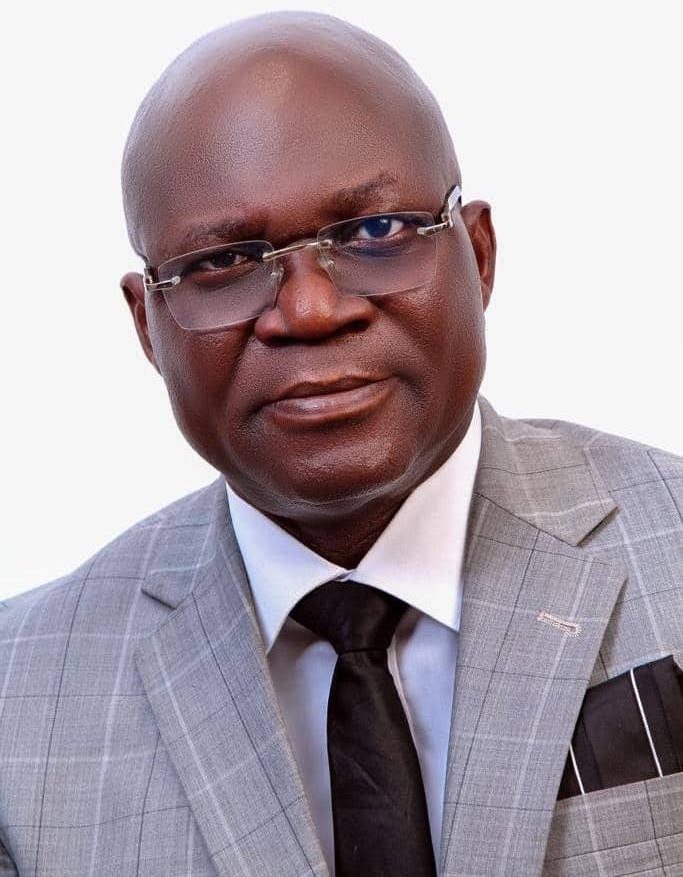In a media landscape often saturated with cynicism and outrage, Reuben Abati’s recent remarks on Arise TV stand out—not for their praise alone, but for their patriotism, professionalism, and principled objectivity. His commendation of President Bola Ahmed Tinubu’s efforts is not a surrender to power, but a strategic affirmation of progress. It is a reminder that when broadcasters speak truth with balance, they become architects of national renewal.
Abati’s voice matters. Not because it flatters, but because it guides. In acknowledging the President’s strides in transparency and revenue recovery, Abati offered a clear-eyed analysis of a government trying to correct systemic rot. As he put it:
“It is good news, if it is true that the Federal Government has been able to collect N1.9 trillion in terms of arrears owed by all these agencies—NNPC, FIRS, and others… What they have collected means there will be more revenue to share at the Federal, State and Local Government levels.”
He went further, drawing a sharp contrast with the previous administration:
“Under the Buhari administration, everybody was just doing what they liked. They were all looking for ways to hide money, to steal money. So, what the Tinubu government is doing is about transparency and accountability.”
Abati’s commentary was not blind endorsement. It was a call for vigilance, fiscal discipline, and purposeful governance. He emphasized:
“We hope that money collected at the distributive pool will be used for the purpose of development, and the effect will be felt by the people.”
This is the kind of commentary that strengthens democracy. It affirms progress where it exists, challenges power where necessary, and always seeks the greater good.
Global Echoes of Positive Broadcasting
History affirms the power of broadcasters who choose to build rather than break:
- Peter Jennings (ABC World News Tonight, USA): Jennings was revered for his calm, thoughtful reporting during national and global crises. His coverage of domestic reforms and international affairs helped Americans navigate uncertainty with informed optimism. He didn’t shy away from critique, but he always sought clarity over chaos.
- Sir Trevor McDonald (ITN, UK): McDonald’s dignified presence and commitment to truth elevated public discourse in Britain. His documentaries and interviews often spotlighted social progress, encouraging civic engagement and national reflection.
These broadcasters understood that journalism, at its best, is a bridge—not a battering ram.
Commentary as Civic Encouragement
Beyond Abati’s remarks, a broader truth emerges: when commentators commend genuine progress, they create incentives for leaders to do more. Praise, when rooted in fact and patriotism, is not weakness—it is wisdom.
President Tinubu’s administration has shown remarkable responsiveness. When UCH and other teaching hospitals cried out over electricity bills, he gave them solar power. When food prices soared, he convened his team and sought private sector collaboration. Today, prices have begun to stabilize in some areas, offering families a measure of relief.
He made Caesarean sections free at federal hospitals. He slashed dialysis costs by two-thirds. He launched Abuja’s rail service with seven months of free rides. He didn’t just introduce a student loan scheme—he ensured that every beneficiary also received a monthly upkeep allowance to ease daily living. Separately, technical college students were granted stipends to support vocational training and reduce dropout rates. Farmers received free fertilizers and tools. In 2024, over 2 million Nigerians were newly enrolled in the national health insurance scheme, bringing total coverage to 19.2 million and significantly reducing out-of-pocket medical expenses for millions of families.
This is not just reform. It is compassion in motion. A government of empathy is in power—and those who are discerning can already see the big picture. Gradually, even the overwhelmed are waking up to the reality that Nigeria is changing for the better.
A Call to Nigeria’s Commentariat
The Reuben Abatis have their indelible roles to play in nation-building. There will be moments when they must speak uncomfortable truths to power—so that our progress is not built on quicksand. But as long as those truths are laced with patriotism and a progressive spirit, every stakeholder is a winner.
This is how to grow a nation. When we commend a leader who has done well in an area, it’s an incentive to encourage them to do more. Wherever we think they have not measured up, let us engage them constructively—not destructively.
Assaulting leadership with negativity every second is unhelpful. Yes, President Tinubu has said he does not expect our pity because he asked for the job—but he is human. Inu didun lohun m’ori ya. Encouragement matters. And when it is earned, it becomes a civic duty.
Let us build a culture where commentary is a tool for growth, not a weapon of distraction. Let us commend where commendation is due, and critique with the intention to refine—not to ruin. In doing so, we honor not just the leaders, but the people they serve.
Stay ahead with the latest updates!
Join The Podium Media on WhatsApp for real-time news alerts, breaking stories, and exclusive content delivered straight to your phone. Don’t miss a headline — subscribe now!
Chat with Us on WhatsApp





